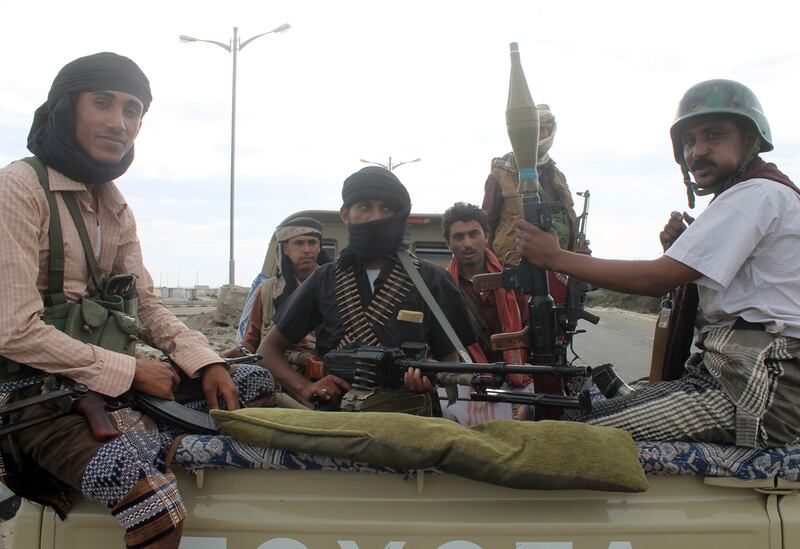ADEN // Yemen’s Iran-backed Houthi rebels are moving within striking distance of the strategic Bab Al Mandab strait, a vital corridor through which much of the world’s maritime trade passes.
Only about 30 kilometres across at its narrowest point, the strait separates the Arabian Peninsula from east Africa and links the Red Sea with the Gulf of Aden.
Nearly 40 per cent of global maritime trade is estimated to pass through the strait, much of it on its way to and from the Suez Canal.
As the Shiite Houthi militiamen have moved south after seizing the capital Sanaa last year, concern has been growing about their intentions for Bab Al Mandab.
Saudi Arabia’s foreign minister, Prince Saud Al Faisal, warned on Monday that Gulf Arab countries will take necessary measures to protect the region against “aggression” by the Houthis if a peaceful solution cannot be found.
On Sunday, the UN security council voiced their unanimous support for the GCC-backed president Abdrabu Mansur Hadi, whose forces oppose the Houthis.
The Houthis on Sunday took control of the airport in the key central city of Taez, tightening the noose around Mr Hadi in his refuge in the southern city of Aden only about 180 kilometres away.
Mr Hadi fled to Aden after escaping house arrest in Sanaa last month, and the country has increasingly been divided between the Houthi-controlled north and presidential loyalists in the south.
Security sources say Houthi forces have been dispatched from Taez to the port of Mocha, some 80 kilometres to the west.
From Mocha, a coastal road of around 100 kilometres leads to Bab Al Mandab.
If the militia does make a move to take control the strait, experts say, Yemen’s crisis could quickly become a global problem.
The Houthis have been closely linked with Iran, which already overlooks another maritime chokepoint, the Strait of Hormuz linking the Gulf with the Arabian Sea.
If the militia takes control of Bab Al Mandab, “Iran would be the main winner,” said Bassem Al Hakimi, a Yemeni political expert.
He said such a move would give Tehran an additional “card to play in the negotiations over its nuclear programme” with world powers.
There is no doubt that the seizure of coastal areas on the strait would raise international concern.
Both the United States and France maintain a military presence on the other side of the strait in Djibouti, and for Egypt the strait is of crucial importance.
Egypt’s ambassador to Yemen, Youssef Al Sharqawi, warned recently that threats to Bab Al Mandab would be a “red line” for Cairo.
“The national security of Yemen is closely linked to the security of the Red Sea, the Gulf and Bab Al Mandab,” he said.
* Agence France-Presse, Reuters





